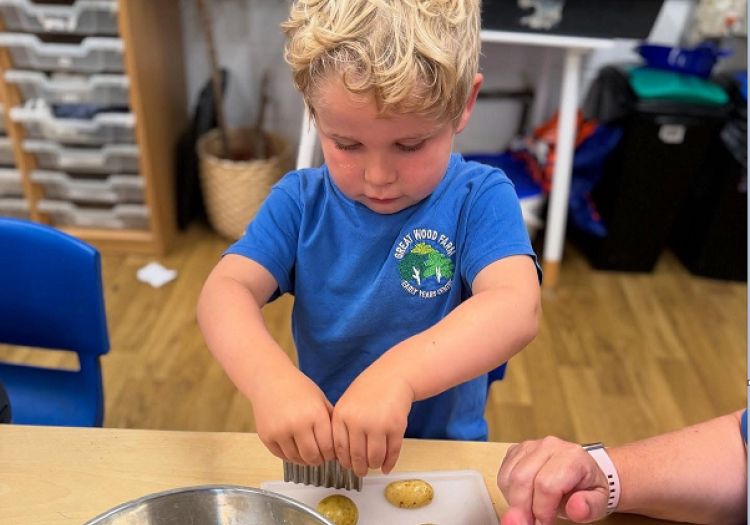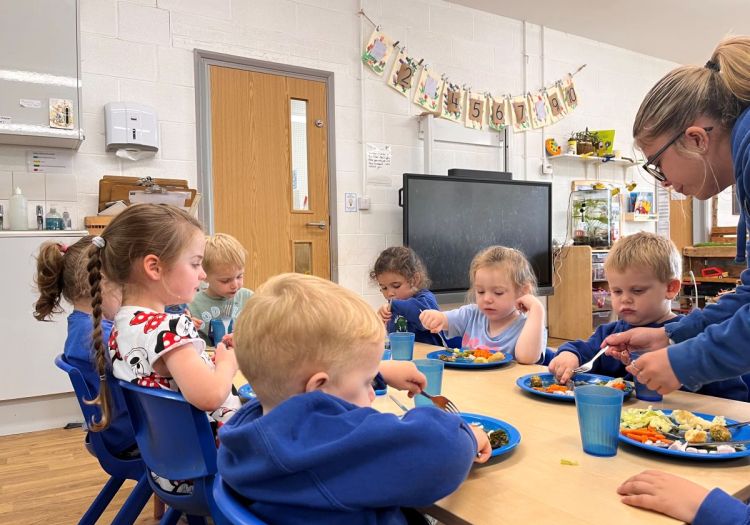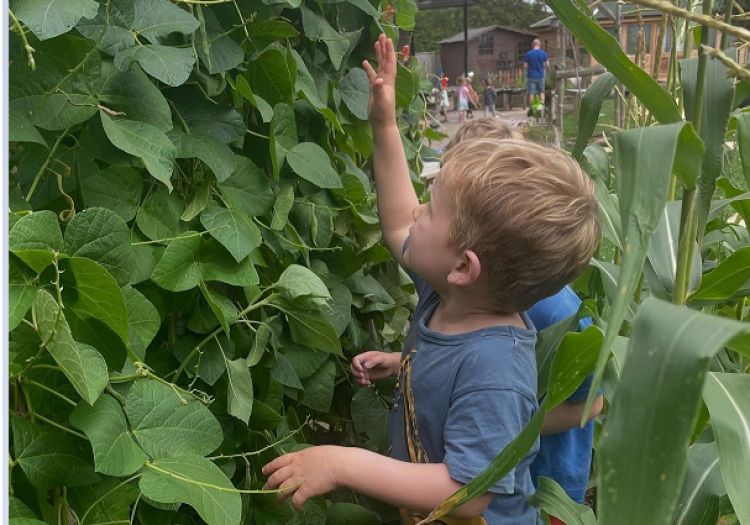Introducing the Department of Education’s new Early Years Foundation Stage Nutrition Guidance.
Information on how we will be following the new Nutrition guidance for Early Years.
In May this year The Department of Education introduced its new Early Years Foundation Stage nutrition guidance in response to the rising number of young children with health conditions such as childhood obesity, tooth decay and type two diabetes.
From birth food forms a big part of our lives. Many of us enjoy cooking and sharing meals with our families and friends. We watch cooking shows on TV. Food forms an important part of many special days, treats, days out and celebrations. We all have favourite foods and a favourite treat or comforting drink can help us feel better when we are having a tough day.
However, our relationships with food can be complicated. As parents and carers of young children, food and nutrition can be the cause much stress, anxiety and guilt. It is easy to feel overwhelmed by conflicting advice, information and opinion. For many families this begins the moment we first offer a new born baby a breast or bottle. Some children experience challenges with new and different tastes and textures and increasingly busy lives can lead us to rely on quick and easy meals that please our family. Food is expensive and increasing financial pressure means we cannot always afford to buy the foods we would choose.
Advertising, the media and social media put pressure on us to provide picture perfect meals and family meal times every day. There is an expectation that we (and our children!) deserve treats and should celebrate successes and special occasions with foods high in sugar and fat or eating out. We can feel guilt that our children are disappointed or missing out if we don’t provide food and experiences that meet their wants and expectations. This pressure is hard to balance with what we know about healthy eating, our finances and our desire to best support our children’s health and well-being.
We hope that by embracing the new guidelines and putting a focus on healthy food choices and food education at nursery, we can support children and families to have a positive relationship with food and form lifelong healthy eating habitats. I wanted to share some of the ways we are changing our approach to food and meal times, the impacts we hope this will have and some of the ways you can continue this learning at home.
The government guidelines emphasise the importance of eating a wide variety of foods from the four main food groups, including a variety of fruit and vegetables, and avoiding foods high in sugar, salt and saturated fats. By introducing a wide variety of home cooked foods right from babies first foods, children will become accustom to a wide range of flavours. They say it can take up to 10 tries for a child to become accustomed to a new taste. We hope that by offering a wide range of healthy foods here, we can do some of the leg work for you and ease the disappointment of carefully preparing food for your children, just to have it rejected!
A great example of this that has had great success is the transition from serving flavored fromage fraise, high in added sugars, to serving plain Greek yoghurt. Initially there was some concern that the children would not eat this but the children have quickly grown to really enjoy their plain yoghurt served pure fruit puree or topped with fresh strawberries or healthy granola.
Pre-prepared sauces and meal bases are often high in sugar and salt, and when children eat these regularly they develop a preference for sweetened and salted foods. Menus include a wide range of fruits and vegetables, varied protein sources including meat, lentils and chickpeas, and a mixture of grains including whole wheat pasta, couscous and barely. All our food will be cooked from scratch in our kitchen and support children to enjoy a wide range of tastes and flavours during their time and nursery and at home, hopefully making meals times a little easier!
Involving children in all aspects of food is a great way to encourage them to try new foods and develop healthy eating habits. Food education as always been important to us at Great Wood Farm and our staff are all currently completing their FoodEd training, an initiative that promotes the exploration of fresh fruit and vegetables at schools and nurseries. This offers children the opportunity to explore fruit and vegetables, without the pressure to taste them if they don’t want to. More information is available here : https://www.tasteeducation.com/
Growing fruit and vegetables helps children to understand where their food comes from and can be as simple and easy as some herbs or bean sprouts on the window sill, or strawberries or cherry tomatoes in a pot. The excitement and pride of having grown it themselves may entice them to try something new! Inviting our children to choose fruit and vegetables while shopping or at a market offers them an opportunity to make choices, and means when they are hungry later their have a selection of healthy snacks they have chosen themselves to eat or cook with.
Involving children in preparing food can also encourage them to try something new. Cooking with young children can feel quite daunting but offering a choice of veggies for children to arrange on their pizza or put in a wrap can be an easy way to start. Each month Rachel will share a recipe for a meal the children have particularly enjoyed. This may offer a great way to add new options to your families’ meal times. You child could help you prepare the meal and you can feel confident they will enjoy it has they have eaten it before.
As well as the nutritional value of the food being served there are some changes to the way we present and serve food. Rather than the expectation that lunch and tea consists of a main meal and pudding, we now offer a main course accompanied by a starter, side or pudding. This is a great habit to adopt at home and can also help ensure we get balanced meals, even when having celebrations or treats. Weekend pizza on the sofa or a garden picnic is a favourite treat for many families. If we offer a bowl of favourite veggies such as snap peas, olives and cherry tomatoes alongside our pizza we create healthy eating habits and ensure our children are getting the vegetables they need. Supplementing our treat meal with some veggies or a fruit salad will also ensure our children are fuller for longer and less likely to crave unhealthy snacks later.
Simple swaps, such as making damper to cook over a campfire instead of offering marshmallows and biscuits can change our own and our children’s expectations of what a treat needs to be. Eating our dinner on the sofa or being in the garden or other special place with their family is just as much the “treat” for our children as the food they eat.
If your child attends a full day at nursery, they will have received all of their daily nutritional needs, and more than enough fruit and vegetables. We hope that knowing that your child has had healthy home cooked meals throughout the days with us, can take some of the pressure out of your evenings and you can focus on spending quality time together and enjoy the occasional special treat together guilt free!
Like in all things, it is important to remember that children develop in their own ways, and at their own pace. Not all children will develop tastes at the same time, and for many food will continue to be a complicated journey.
By Laura Donoyou, Deputy Manager




